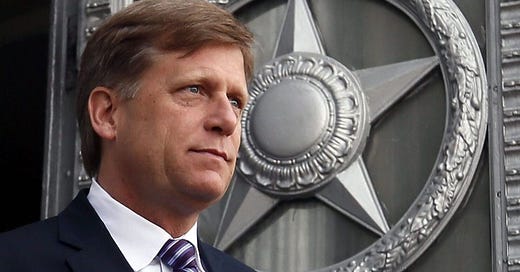Dear Friends and Colleagues,
Last January marked Donald Trump’s return to the White House. In the first weeks, Trump signed a flurry of destructive executive orders, from halting trade agreements, immigration, and U.S. foreign assistance to dismantling the federal workforce. This, without a doubt, constitutes a new era in U.S. foreign policy. I anticipated there would be big changes fast. I did not anticipate the speed and scale of the proposed (not actual) changes. Trump’s foreign policy has already compelled me to rethink my research and policy work.
As I explained in detail on Substack, three big debates have shaped our foreign policy strategies over the centuries: isolation versus internationalism, unilateralism versus multilateralism, and realism versus liberalism. So far, Trump has articulated a clear preference for isolationism, unilateralism, and realism. I think he is on the wrong side in all three debates—isolationism, unilateralism, and realism are not the best approaches for making Americans “stronger or safer or more prosperous.” So, also on Substack, I wrote “Surviving as a Liberal Internationalist in the Era of Trump’s Illiberal Nationalism.” Constructive engagement and respectful opposition are the only viable options!
In response to some of Trump’s actions, I wrote “Stop Discussing the Purchase of Greenland!” in McFaul’s World and “Why Is Trump Trying to Lose Our New Cold War With China?” in The Dispatch, and joined MSNBC’s Morning Joe to discuss recent developments with USAID. Do you remember who shut down USAID when I was serving as the U.S. Ambassador? Putin did. That should tell you all you need to know about who will benefit from closing down all of USAID. I hope it doesn’t happen.
On MSNBC this month, I also commented on Biden’s last weeks in office, including his decision to impose new sanctions against Russia. Additionally, I joined Ray Suarez’s podcast, On Shifting Grounds, where I hypothesized that Ukrainians would fight on, even if Trump and Putin tried to negotiate a deal without them. Listen here.
I am still hopeful that an end to Russia’s barbaric invasion of Ukraine can be negotiated. President Trump’s commitment to mediate a peace settlement has generated new buzz about the contours of a deal. I have my own concrete ideas for the conditions that could produce a lasting and just peace. I am circulating one more time my formula, published in Foreign Affairs, called How Trump Can End the War in Ukraine.
I continue to coordinate the International Working Group on Russian Sanctions and remain in close contact with my Ukrainian colleagues. Recently, we published our latest paper, The Path Forward on Energy Sanctions: A Toolkit to Step Up Pressure on Russia in 2025. As always, we are looking for new ideas, so please share if you have any!
And one more piece of good news! We have settled on the title of my next book: Autocrats versus Democrats: China, Russia and the New World. It’s scheduled to be released in the fall. In the homestretch!
At FSI, we have many more events coming up. In particular, join us in person or online for a special event with four former Ukrainian visiting scholars at FSI who will be speaking on February 24, the third anniversary of Russia’s full-scale invasion of Ukraine. More details here.
To stay updated on events, opportunities, and policy recommendations by scholars at the Freeman Spogli Institute for International Studies, please sign up for FSI’s email blasts and follow us on LinkedIn. Feel free to share your comments on the content below and any suggestions for improving this newsletter. To sign up for the newsletter, please click here. I hope you join us in person or online for our fabulous events!
Keep in touch,
Mike





Yes, anticipating the new book also. I do not believe all the news, even just everything narrative published in both the national and local papers -- typically just some of it. People are happy that you keep at it in the foreign policy debate, and please continue. Also, I do not want to change the title of your book, but it's about international things and some title consideration in one way or another is deserved by the non - aligned (not just us and Russia / China), and some narrative currency might be spent on the weak form of foreign outreach practiced by the P.R.C. in addition to its foreign strength and policy being heavily conditioned by P.R.C. CCP, and "People's" interior considerations.
Look forward to reading the new book.